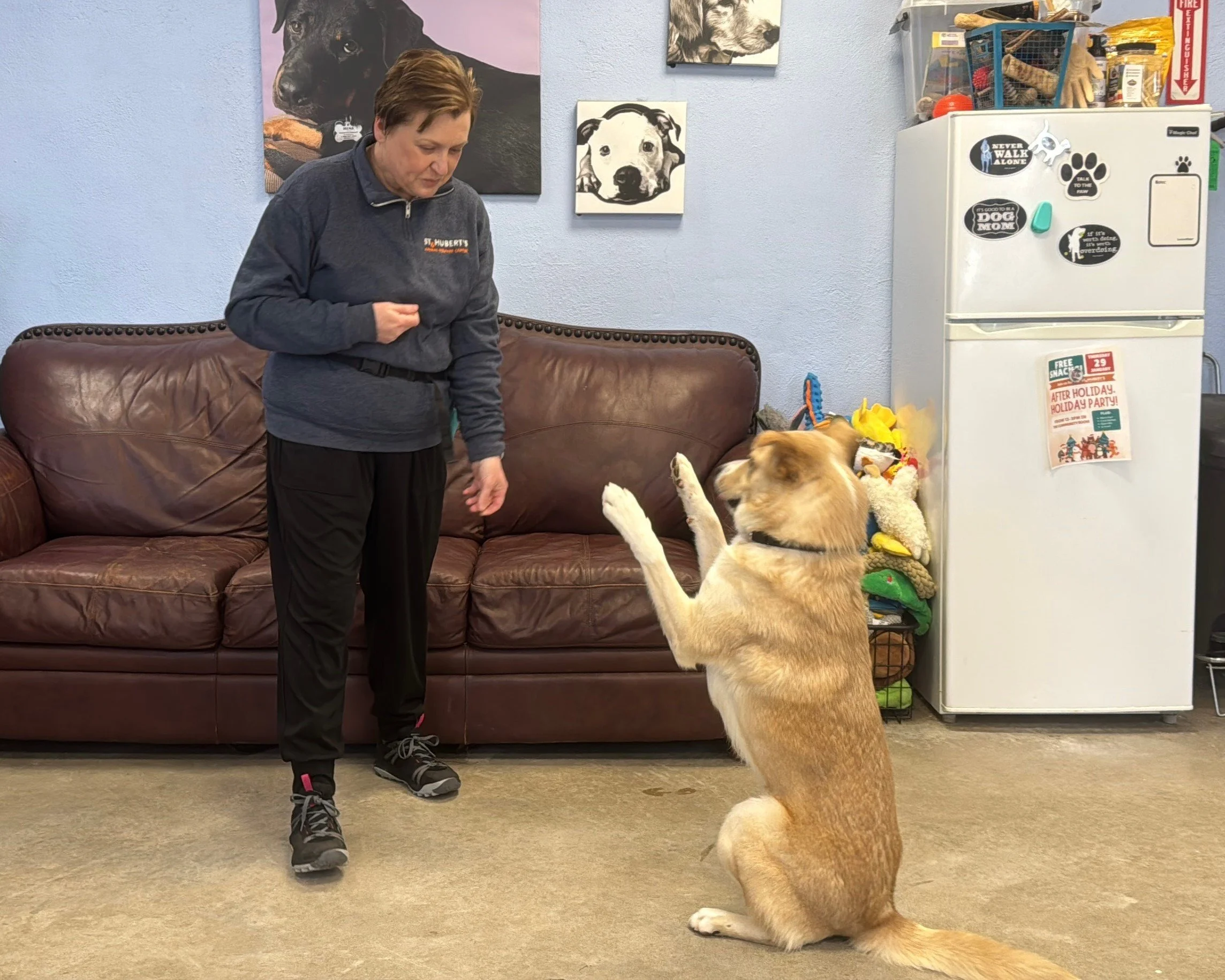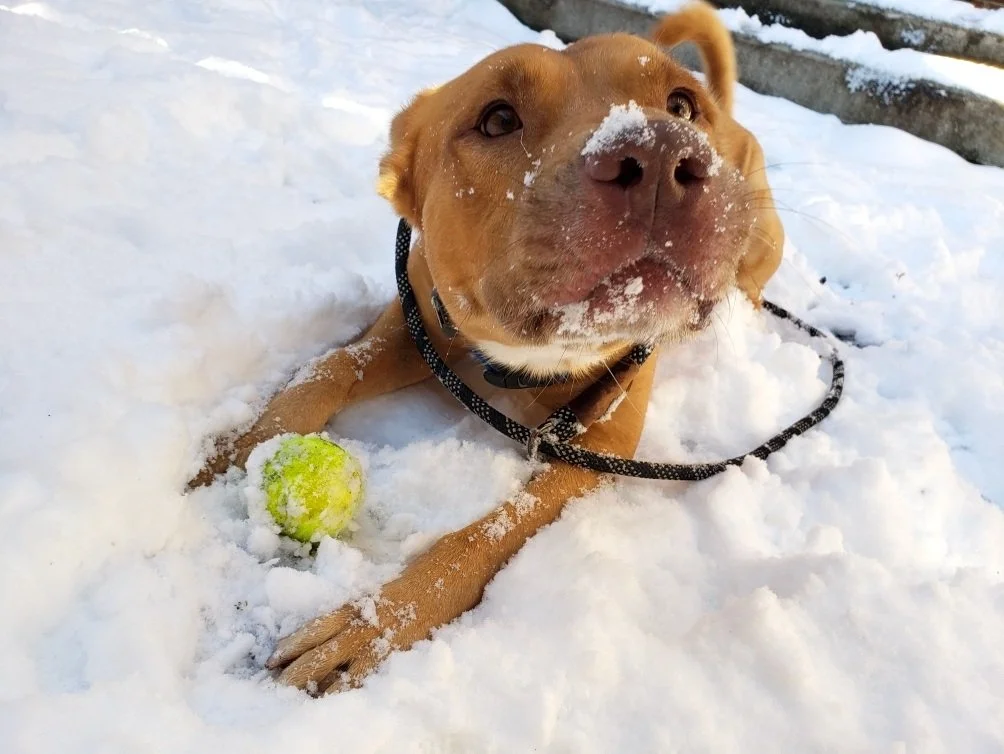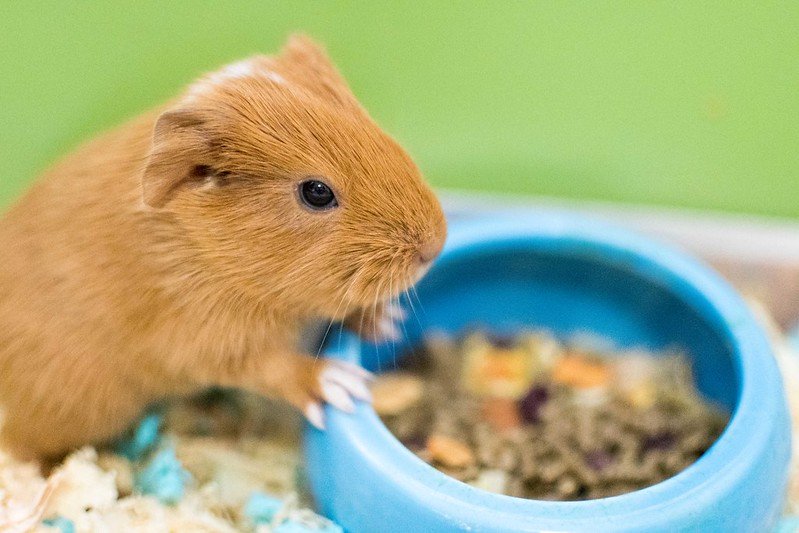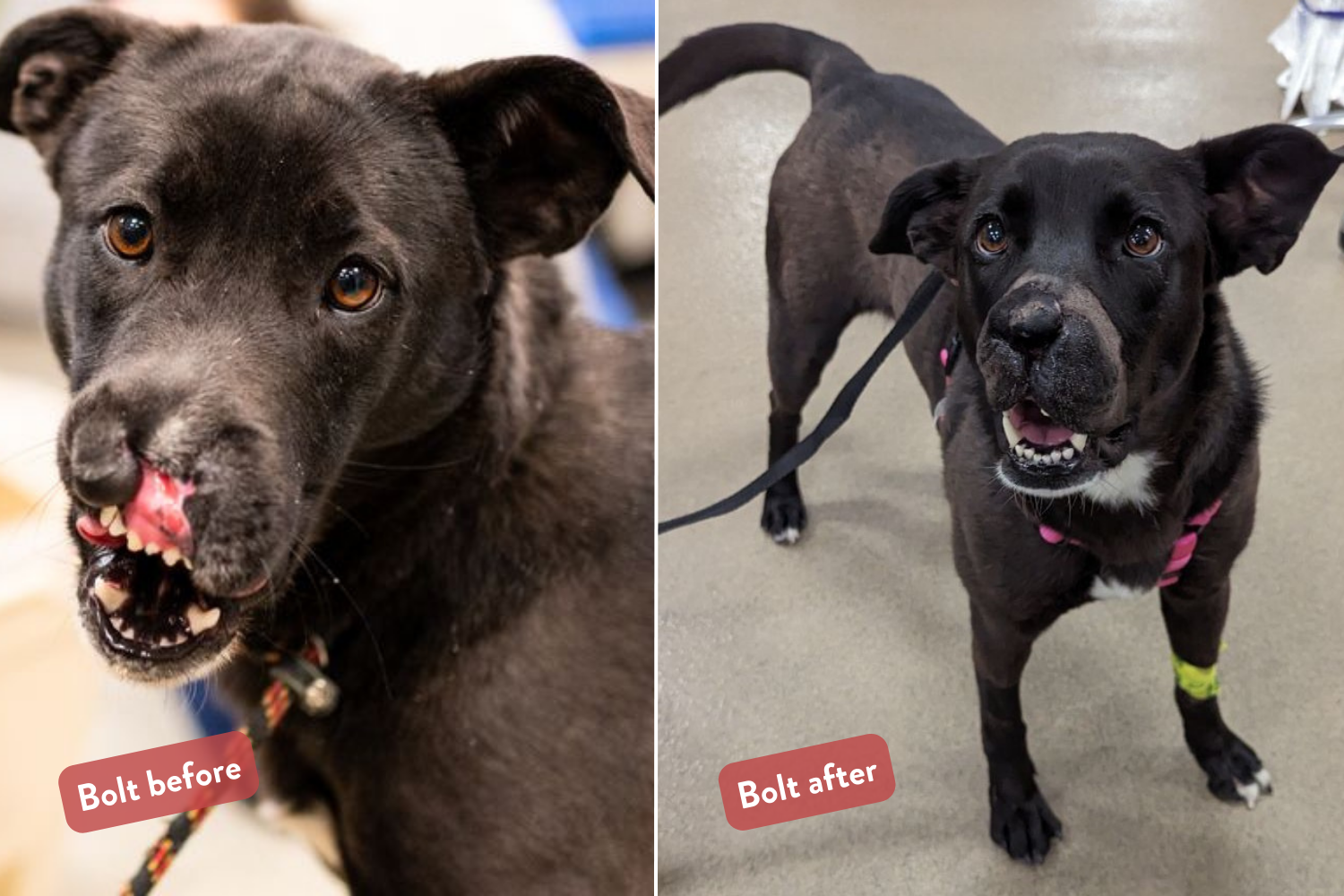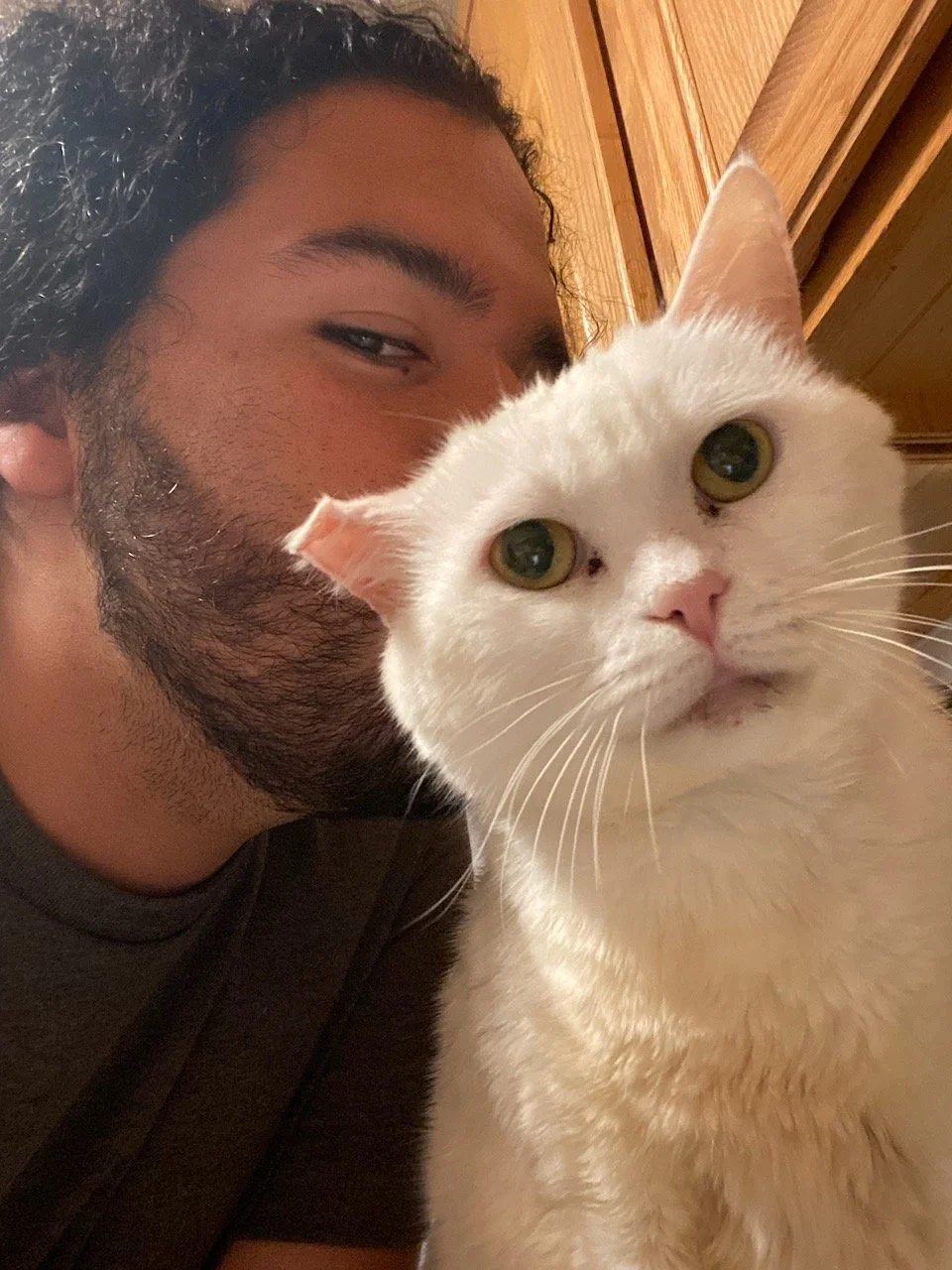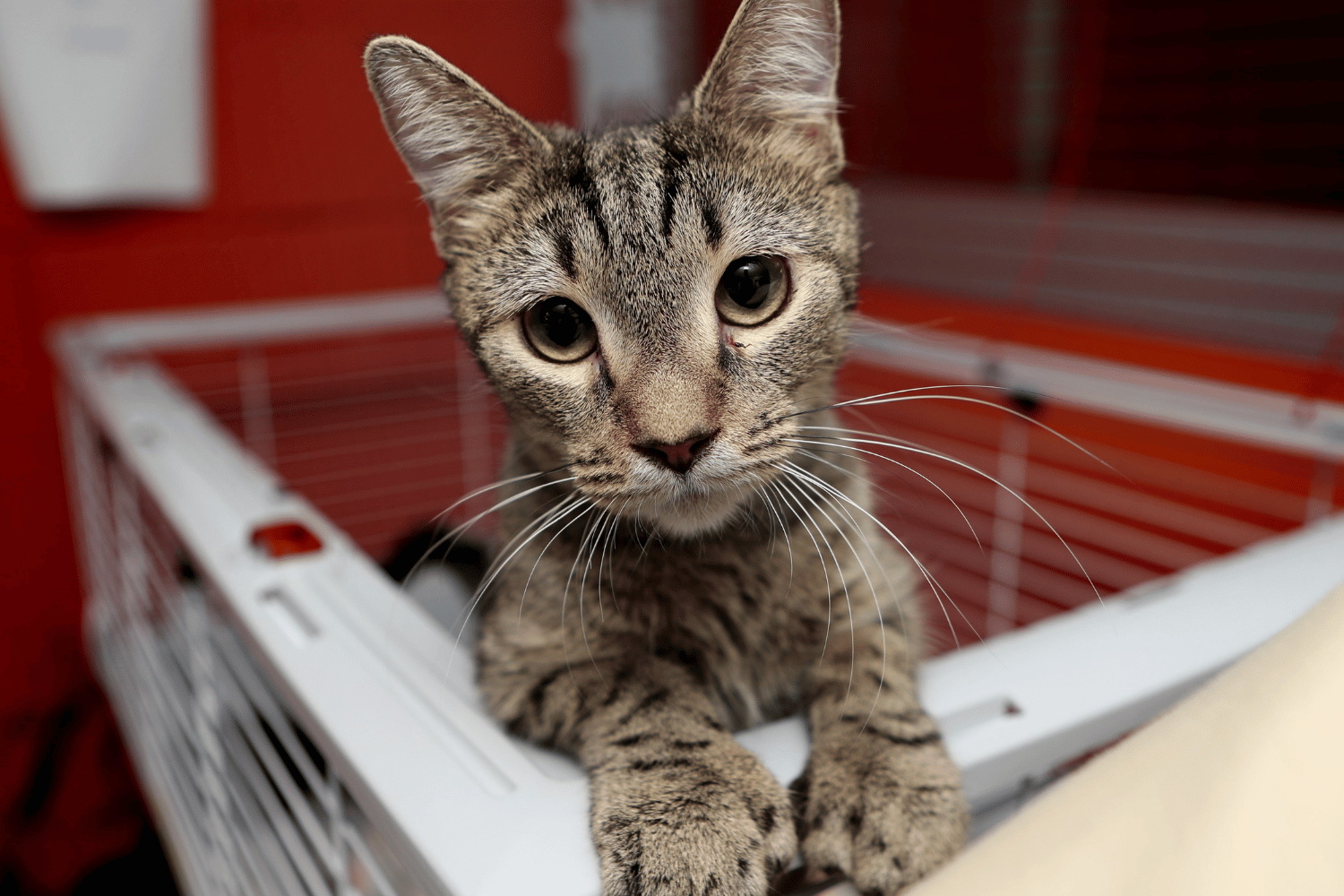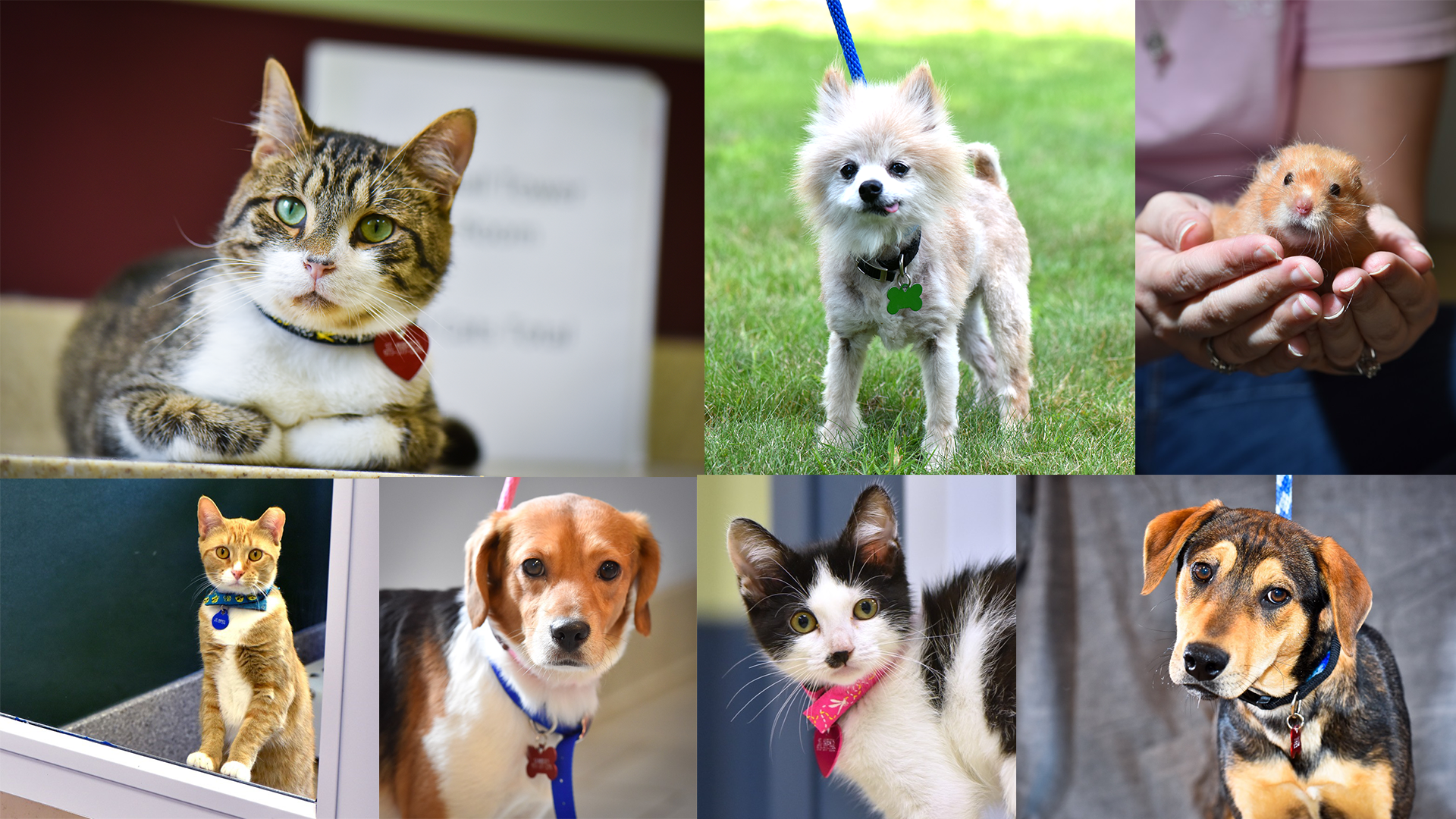
LATEST NEWS
Keeping Your Dog Busy & Engaged Inside When The Weather’s Bad Outside
Preparing for cold, snowy weather isn’t just about stocking up on groceries — it’s also about keeping our pets safe, healthy, and happy. When frigid, icy conditions limit walks and outdoor play, dogs can quickly become bored, restless, and possibly destructive. Fortunately, mental enrichment can be just as important as physical exercise. Engaging your dog’s brain helps burn energy, reduce stress, and prevents unwanted behaviors when cabin fever sets in.
Here are three easy tips to keep dogs busy and engaged indoors, as recommended by the training and behavior experts here at St. Hubert’s:
1. Turn mealtime into a game. Skip the food bowl and make your dog “work” for their meal. Toss small handfuls of dry food one piece at a time across the room so your dog has to run and sniff to find it. Using their nose is mentally enriching, and the built-in movement adds physical exercise. Do this for 10–15 minutes, and if you feed your dog twice a day that’s even better.
2. Create a “towel burrito.” Hide treats or kibble inside a towel, roll it up, and let your dog sniff out their food. Sniffing is highly enriching and naturally calming, helping dogs stay relaxed during stressful or stormy weather.
3. Practice short training sessions. Spend 10–15 minutes working on basic cues like sit, stay, and down, or reinforce skills your dog already knows. You can also teach fun tricks like hand targeting or spinning. Training builds confidence, strengthens your bond, and provides excellent mental exercise.
St. Hubert’s recommends rewards-based, force-free training methods, and we have additional boredom-busting ideas on our website.
How to keep pets safe in cold weather
As the temperature drops, it’s time for some helpful reminders for pet parents about how to protect your pets during cold weather. Taking a few extra precautions can help keep your beloved companion safe and warm during the winter months.
Limit your pet’s time outside during extreme temperatures. If it’s too cold for you, it’s likely too cold for your pet. Similar to humans, pets are also susceptible to frostbite and hypothermia.
Protect your pet’s paws from irritation caused by salt and other chemicals by applying products such as petroleum jelly or Musher’s Secret before heading outside. These products create a wax-like barrier that hydrates and safeguards your pet’s paws from the elements. If your pet will allow them, boots provide even more coverage and can also prevent sand and salt from getting lodged between bare toes.
After each walk, wash your pet’s feet and abdomen with warm water and towel dry to prevent further irritation from salt, ice, and other harmful chemicals. Check for any redness and cracks on the paw pad and in between the toes.
Never let your dog off the leash on snow or ice, especially during a snowstorm. Dogs frequently lose their scent in snow and ice and easily become lost. More dogs are lost during the winter than during any other season.
Antifreeze, used to protect your car during the winter months, is poisonous and often deadly when ingested by pets. Prevent accidental ingestion by thoroughly mopping up any spills.
Use pet-friendly ice melts to help protect your pet’s paws.
Avoid cutting your dog’s hair during the winter. Longer coats provide more warmth. Trim long-haired companions to minimize the clinging of snow and ice.
If your dog is short-haired, consider getting him a coat or sweater with coverage from the base of the tail to the belly.
Provide your pet with a warm place to sleep that is off of the floor and away from all drafts.
According to New Jersey law, “It is unlawful to expose a dog, pet, or service animal to harsh weather conditions, such as freezing temperatures (32 degrees Fahrenheit or below), excessive heat (90 degrees Fahrenheit or above), rain or snow, for more than thirty minutes when the owner or caretaker of the animal is not with the animal and exposed to same conditions.”
Everything You Need to Know About Guinea Pigs
Guinea pigs are wonderful animals who can make great companions for a variety of families; they’re gentle, tiny and have amazing personalities. Not to mention every single one of them is as cute as a button! Here are key facts about them to help you determine whether you should adopt a guinea pig into your family.
Is a guinea pig the right pet for me?
Will they want to spend time with me?
Absolutely! Guinea pigs get to know their people, get excited to see them and love to spend time with their family.
What about with my children?
Guinea pigs tend to be one of the better pet choices for families with children who are looking for a small companion. Like all small animals, guinea pigs can be fragile and easily startled, so an adult should always supervise and guide children when they are handling them. Keep in mind: although many children love these fuzzy little potatoes with legs, sometimes they lose interest and ultimately it will be the adult’s responsibility to make sure they are loved and cared for.
Guinea pigs are not a low-maintenance animal.
Guinea pigs can poop up to 100 times a day per pig. Their cage will need to be spot cleaned daily to keep it tidy.
Guinea pigs are not always quiet.
Although they are relatively quiet animals, guinea pigs do get very excited over their people and treats and love to let their people know they are there.
When are they awake?
Guinea pigs are awake throughout the day and night. While typically they are not too noisy at night, they may run around a bit. They prefer to take naps in between play and mealtime.
What about allergies?
Although it is possible to be allergic to guinea pigs, people are more commonly allergic to hay or pollen which is a necessary part of their diet.
How are they with other pets?
Guinea pigs do not tend to mind other pets, although they should never be allowed to interact with another species without supervision as there is always a risk involved.
What is their lifespan?
On average, guinea pigs live five to seven years.
Guinea pig needs
A guinea pig friend.
That’s right, guinea pigs for the most part need a friend! Guinea pigs are social animals and live in herds in the wild. To prevent accidental babies, guinea pigs should be kept in same-gender pairs or groups unless they are spayed or neutered.
A wide area to run around.
Guinea pigs love to have space to run around and play. They require unbroken floor space; they are not climbing critters! Females need about 7.5 square feet of unbroken floor space for a pair, while males need about 10 square feet of unbroken floor space per pair.
Lots of food.
Guinea pigs are constantly munching away and it’s important they always have access to food. We recommend they have unlimited access to timothy hay (or orchard grass) and about one cup of vegetables per day. Variety is amazing for their diets, and lots of different colors and types of vegetables are good for them. High-quality pellets are also great for guinea pigs, in moderation. A pig should have about 1/8 cup of pellets per day.
Water source.
Guinea pigs, like all animals, need access to water. While water bottles conveniently hang on the side of their cage and are easy to fill, sometimes the water can get stuck. A water dish gives them a more natural way to drink water (although it can be a bit messy).
Rather than purchasing a guinea pig from a pet store and creating a bigger demand for this small animal, we strongly encourage people to adopt one (or two!) from their local shelter. St. Hubert’s often has guinea pigs available for adoption.
5 Myths About Big Dogs Debunked
We really like big dogs here at St. Hubert’s Animal Welfare Center…so we’re debunking five myths about dogs over 40 pounds to give our big four-legged friends the credit they deserve.
Myth #1 “Big dogs can’t live in small spaces, like apartments.”
False! Dogs of all sizes can live in apartments under the right circumstances. It’s not the size of the dog that determines how suitable they are to live in small spaces, rather it’s their energy levels and the amount of exercise and enrichment they require.
Myth #2 “It’s harder to travel when you have big dogs.”
No way! With pet sitting and boarding options readily available, traveling has never been easier for pet parents. Traveling with your large dog is an option, too, and they are more likely to keep up and keep you company on any adventure!
Myth #3 “Big dogs should NOT live with small children.”
Untrue. It’s not the weight of an animal that determines if they’re best suited to be around children but instead their temperament and energy level. Adoption counselors at St. Hubert’s will work with you to find a dog who is the right match for your family.
Myth #4 “Only small dogs can be lap dogs.”
If they think they’re a lap dog, then we couldn’t agree more. It’s just one way dogs show how much they love you.
Myth #5 “Since I can't adopt, there's not much else I can do to help.”
Totally untrue. There are so many other ways to help big dogs. Not only does St. Hubert’s provide adoption services, but we also have a robust foster program that allows people to temporarily house big dogs while they wait to get matched with a loving family of their own. Fosters get to experience the joy and companionship that comes from caring for a big dog without having to make a permanent commitment.
Mosaic Animal Health Center at St. Hubert's provides a new kind of veterinary care
Mosaic Animal Health Center at St. Hubert's Brings Next-Level Care to Pet Owners in Madison and Chatham
Pet owners in Madison, Chatham and surrounding communities have access to a new kind of veterinary care at Mosaic Animal Health Center at St. Hubert's. Located on our Madison campus, Mosaic Animal Health Center at St. Hubert’s has become a leading resource for pet wellness in the community.
Mosaic Animal Health Center at St. Hubert’s offers appointments Monday through Saturday. Mosaic Animal Health Center delivers exceptional veterinary care in a compassionate and welcoming environment that tends to the unique needs of pets. Mosaic Animal Health Center shares a commitment to the well-being of animals with St. Hubert’s Animal Welfare Center and will support our mission through medical assistance prior to adoption, donations, and discounts.
Mosaic Animal Health Center boasts a team of highly skilled veterinarians and staff dedicated to providing comprehensive medical services for dogs and cats. From routine check-ups and vaccinations to advanced diagnostics and surgical procedures, the Center offers a wide range of services to meet the diverse needs of its furry patients. Dr. Michael Brown, Board Certified Veterinary Ophthalmologist, will also be seeing patients one day a week at the Center.
"Our goal is to not only provide top-notch medical care for pets but also to serve as a trusted resource for pet owners in promoting the health and happiness of their beloved companions,” said Dr. Monica Ilardi, Medical Director and Partner at Mosaic Animal Health Center. “We are building a unique culture at Mosaic and look forward to attracting new team members who share our mission, vision, and values."
Tiffany Cotton, Executive Director of St. Hubert’s Animal Welfare Center, added, "We welcome Mosaic Animal Health Center to the St. Hubert's Animal Welfare Center Campus. Mosaic will deliver great care to all pets in our surrounding communities while also furthering St Hubert's mission by providing care to our pets prior to adoption."
In addition to its commitment to clinical excellence, Mosaic Animal Health Center at St. Hubert’s places a strong emphasis on pet-parent education and communication. The team believes informed pet owners are better equipped to make decisions regarding their pets' health and well-being. As such, they strive to empower clients with the knowledge and resources needed to ensure their pets lead long, healthy lives.
For more information about Mosaic Animal Health Center at St. Hubert's or to schedule an appointment, please visit mosaicatsthuberts.com or call 973-954-5919.
How to keep your animals safe and secure this Fourth of July
Fireworks can be awesome but not every member of the family is in on the fun. Adrienne Carson, vice president of Training and Behavior at St. Hubert’s Animal Welfare Center offers the following suggestions for pet owners and guardians to help keep animals safe and secure this summer.
How to keep your pet safe this Fourth of July?
On the Fourth of July many pets become frightened and overwhelmed by the loud noise and flashes of fireworks. Fireworks can be terrifying for cats and dogs and cause them to flee or try to escape and become lost.
Keep pets indoors.
The safest place for your pet is at home, not in a crowded, unfamiliar, and noisy place. The combination of too many people and loud fireworks could make your pet panic and desperately seek shelter. Another reason to keep your pets at home is hot summer temperatures. Leaving your pet in the car is never an option and can become deadly quickly. Act immediately if you notice signs of heatstroke and follow our tips for keeping your dog safe in extreme heat.
Create a safe place in your home.
Keep pets indoors with window shades and curtains closed. Turn on a television, radio, white noise machine, or play calming music for your pets and create a safe place in your home for your cat or dog to hide. For example, open a closet door and put in a pet bed, creating an enclosed space with no windows. Giving your pet a safe haven like a covered crate with the door open in the innermost part of your house can help them get away from external noises and commotion.
Ensure ID tags are up-to-date.
Make sure your animals are wearing ID tags on their collars with up-to-date contact information. If your pet is micro chipped, double check that your information is current. If your animal does escape, file a lost report with your local animal care and control.
Shut all doors and windows.
Panicked animals can easily break through screens. Dogs can often open doors by jumping when scared, especially doors with lever-type handles. Secure doors with a bolt lock or chain latch.
Consult your veterinarian.
If your animal is fearful of thunderstorms it is likely they will be fearful of fireworks. Consult your veterinarian in advance for medication that may help ease your pet's anxiety.
Keeping Your Dog Safe in Extreme Heat
10 Important Tips in Dealing with Extreme Heat
ST. HUBERT’S ADVISES PET OWNERS TO BE AWARE OF THE FOLLOWING:
Keep your pets indoors when temperatures are extreme and in the shade when they are outdoors.
Walk your pets early in the morning or later in the evening to avoid the hottest part of the day.
Give pets plenty of water to avoid dehydration. When you walk your pet or take your pet outside, carry water with you.
Never leave your animals alone in a parked vehicle. Temperatures in cars can increase rapidly and become lethal.
Animals with short noses such as Bulldogs, Pugs, Boston Terriers and Persian cats, are especially vulnerable in the heat. Dogs and cats cool themselves by breathing through their mouths, but those with flat faces cannot cool as quickly and need extra attention.
If your pet is panting excessively, drooling, struggling to walk, is lethargic, or has bloody diarrhea or vomiting, know that that these are potentially signs of overheating.Windows in the home that are open should have screens. Pets can fall out of open, unsecured windows.
Be careful with dogs on asphalt in the heat. Not only are their paws sensitive but because their bodies are closer to the asphalt, they can overheat more easily.
As always, if you think your pet is in distress due to the heat, call your veterinarian as soon as possible.
If you are hot, your pet is too!
Mosaic Animal Health Center at St. Hubert's is now open
Grand Opening of Mosaic Animal Health Center at St. Hubert's Brings Next-Level Care to Pet Owners in Madison and Chatham
Pet owners in Madison, Chatham and surrounding communities now have access to a new kind of veterinary care with the opening of Mosaic Animal Health Center at St. Hubert's. Located on our Madison campus, Mosaic Animal Health Center at St. Hubert’s is set to become a leading resource for pet wellness in the community.
Mosaic Animal Health Center at St. Hubert’s is now seeing appointments Monday through Saturday with some evening appointments during the week. With its grand opening celebration scheduled for Spring 2024, Mosaic Animal Health Center promises to deliver exceptional veterinary care in a compassionate and welcoming environment that tends to the unique needs of pets. Mosaic Animal Health Center shares a commitment to the well-being of animals with St. Hubert’s Animal Welfare Center and will support our mission through medical assistance prior to adoption, donations, and discounts.
Mosaic Animal Health Center boasts a team of highly skilled veterinarians and staff dedicated to providing comprehensive medical services for dogs and cats. From routine check-ups and vaccinations to advanced diagnostics and surgical procedures, the Center offers a wide range of services to meet the diverse needs of its furry patients. Dr. Michael Brown, Board Certified Veterinary Ophthalmologist, will also be seeing patients one day a week at the Center.
"We are thrilled to announce the grand opening of Mosaic Animal Health Center at St. Hubert's," said Dr. Monica Ilardi, Medical Director and Partner at Mosaic Animal Health Center. "Our goal is to not only provide top-notch medical care for pets but also to serve as a trusted resource for pet owners in promoting the health and happiness of their beloved companions. We are building a unique culture at Mosaic and look forward to attracting new team members who share our mission, vision, and values."
Tiffany Cotton, Executive Director of St. Hubert’s Animal Welfare Center, added, "We welcome Mosaic Animal Health Center to the St. Hubert's Animal Welfare Center Campus. Mosaic will deliver great care to all pets in our surrounding communities while also furthering St Hubert's mission by providing care to our pets prior to adoption."
In addition to its commitment to clinical excellence, Mosaic Animal Health Center at St. Hubert’s places a strong emphasis on pet-parent education and communication. The team believes informed pet owners are better equipped to make decisions regarding their pets' health and well-being. As such, they strive to empower clients with the knowledge and resources needed to ensure their pets lead long, healthy lives.
For more information about Mosaic Animal Health Center at St. Hubert's or to schedule an appointment, please visit mosaicatsthuberts.com or call 973-954-5919.
2023: A Year in Review
A Message from Lisa LaFontaine, President and CEO
The year 2023 marked a year of innovation, growth, and expansion.
Our commitment to honoring and celebrating the human-animal bond is at the core of our work. We know that when we help animals, and their people, we are enhancing the communities we serve. This year, we cared for more animals and people than ever before, kept more pets in their homes with the families who already love them, and worked with partner organizations to create stronger safety nets so more animals can thrive.
Here are just a few of our achievements:
We continued to support partner shelters throughout the country and in New Jersey through our WayStation transport program, as animal shelters nationwide were overwhelmed with a surge in dog intake.
We provided exceptional care to the 4,056 animals who came through our doors in need of support. And, we offered financial assistance, medical care, food, and supplies to ensure 1,736 pets and their families remained healthy – and together.
Our foster program was expanded significantly, and 53% of the animals who came through our doors were living with foster families on any given day.
Adoptions increased by 5.4% as compared to 2022. We did this by removing barriers and broadening accessibility beyond our Madison campus through adoption events at the Ledgewood location and PetSmart stores.
Our team advocated for the passage of two landmark animal welfare bills, ushering in a powerful new chapter in animal protection.
Woven into these accomplishments is an abundance of gratitude – for the animals and people who touched our lives; for our community of supporters – like you – who generously contributed their resources and enabled us to fulfill our mission; and for our dedicated staff and volunteers who, day in and day out, stand ready to undertake the essential work of protecting animals and supporting families.
These successes were made possible because of your generous support and partnership with St. Hubert’s. We are proud to have a great deal of good news to share from this past year. As you read through this report and see our impact, I hope you realize that there are thousands of animals living better lives because of you. If they could, these precious animals and their families would say thank you!
Kind regards,
President & CEO
Woven into these accomplishments is an abundance of gratitude – for the animals and people who touched our lives; for our community of supporters who generously contributed their time and talents and empowered us to fulfill our mission; and for our dedicated staff and volunteers who, day in and day out, stand ready to undertake the essential work of protecting animals and supporting families.
Saving Lives and Building Capacity, One Precious Animal at a Time
Through flights and vehicle transport, our WayStation program moves dogs and cats from “source” shelter partners, located in areas where the number of homeless animals far exceeds the available homes, to “destination” partners, located in areas where animals have many more opportunities to be adopted. Each destination partner returns a portion of the adoption fee for every adopted animal to the source shelter where the animal originated, allowing that home shelter to invest in solutions to address the root causes of overpopulation in their communities. In 2023, we transported 3,433 animals and provided $70,720 in Give Back funds.
Meet Sammy
Our WayStation team was picking up a group of cats from the Homeward Bound Pet Adoption Center near Camden, New Jersey, when they spotted a tiny, orange kitten alone in his kennel. The 2-week-old kitten was hunched in a bowl and shivering, with one eye seriously infected and a cloudy patch in the other. Veronica Greco, WayStation program manager, pulled him into the transport group and took him home as her own foster.
For the first five days, he was so weak that he only woke up to eat and then went back to sleep. After five days of steady nutrition Sammy’s personality began to shine, and with each passing moment he grew stronger. During the day, Sammy rested in the incubator at St. Hubert’s while Veronica arranged for hundreds of cats to be transferred in from partner shelters in New Jersey. Soon, he was strong and old enough to undergo surgery to remove his damaged eye and be neutered so he could start looking for a new family. During his time as an “office foster,” this lucky kitten caught the eye (and heart) of WayStation Director Lynn Garcia, who formed a deep bond with Sammy. Lynn, who already had a single-eyed cat, welcomed Sammy into her home as soon as he was ready to go home!
Meet Chief
Chief is a 6-year-old dog who endured unimaginable hardships before he came to St. Hubert’s. Described as an “old, gentle soul” by our WayStation partner in Louisiana, Chief had heartworm disease and had to undergo a leg amputation due to being shot in a tragic accident. Despite every challenge, his spirit remained unbroken. After his health improved and he was cleared for transport, Chief boarded a flight to New Jersey. We matched him with a foster family and provided him with lifesaving heartworm treatment.
Chief flourished under the nurturing care of his foster family. And when it came time to find his permanent home, Chief didn’t have to go far – he went home with his foster family’s neighbor! Their daughter, Betty, was initially nervous around dogs, but she quickly warmed to Chief’s calm and sweet demeanor. Chief seamlessly integrated into their household, quickly forging bonds with their cats and bringing immense joy and love to his new family. Today, Chief is living his best possible life, embraced by a family who cares for his every need, including a little girl who adores him and provides him with the love and safety he deserves.
Helping Homeless Animals
Our team works diligently every day to ensure that animals who come through our doors are placed in loving homes. Thanks to our incredible staff and community of foster families, volunteers, and supporters, 2,448 animals found new homes this year. Here are just a few of their stories.
Meet BOLT
When we first met Bolt, she couldn’t eat, drink, or even breathe without pain due to a severe injury to her face. Her upper teeth were exposed, and most of her nose was missing, leaving sensitive nerve endings that were painful to the touch. Thanks to our generous supporters, we found a specialist to perform reconstructive facial surgery and several follow-up treatments. This transformative procedure both alleviated Bolt’s pain and enhanced her quality of life, granting her the simple joys of eating and breathing without discomfort. Bolt now spends her days at home with her new family, including two feline sisters. Bolt's journey is a testament to the impact of compassionate care and the generosity of those who support our mission.
Meet ELSA
Before making her way to St. Hubert’s, Elsa was brought in to one of our shelter partners in Louisiana, and she was lucky to get on an upcoming transport. Elsa suffered from mange, a painful skin disease that causes severe itchiness, hair loss, and the formation of scabs. Our foster team matched her with a loving family who, along with our medical team, provided her with the treatment and love she needed to heal. In just a few weeks, her skin condition greatly improved and she thrived in her foster home. Soon after, she was adopted and now shares her home with a canine brother who also was adopted from St. Hubert’s!
Keeping Families Together
We aim to keep as many pets as possible in their homes with the families who have loved them and cared for them. Our Pet Support programs help keep families whole by providing minor medical treatments that their guardians couldn’t otherwise afford. In 2023, we enabled more than 700 pets to stay with their families through lifesaving and sustaining programs and services.
Meet LECHE
Jose became worried when his 12-year-old cat Leche had been vomiting for nearly 24 hours. Jose and Leche took an Uber to a veterinary clinic that did not offer financial assistance, then another, still unable to secure care because of financial constraints. As Leche’s temperature rose six degrees above average, Jose was desperate to get treatment for his beloved cat. One of the veterinarians had suggested he call St. Hubert’s for assistance.
Fortunately, Jennifer Gregory, our community programs manager, connected Jose with a local veterinary clinic for immediate care, with St. Hubert’s covering the cost. Leche was finally able to receive the help he needed! After 24 hours of inpatient care, where he received fluids and antibiotics, Leche was released with medication so he could recover at home. Jose was thrilled he could keep Leche and care for him through his recuperation.
Legislative Victories
In 2023, we were thrilled to celebrate the passage of two landmark animal welfare bills that we championed in New Jersey, marking significant victories for animals and compassionate community members alike!
Cost of animal care legislation provides a crucial step forward in our fight against animal cruelty by making it easier for animal shelters to provide the care and support needed for animal victims of abuse and neglect. With improved resources and streamlined processes, New Jersey is paving the way for a brighter future for countless animals seized in cruelty cases.
After over a decade of advocacy from across the state, New Jersey takes a bold stand with the passage of legislation to end the inhumane confinement of mother pigs and baby cows in gestation and veal crates. No longer will these animals be forced to endure cramped conditions that rob them of their natural behaviors and emotional well-being.
The successful passage of these bills is a testament to the thousands of advocates, organizations, and caring individuals who lent their voices to stand up for those who cannot speak for themselves. We were proud to play a role in these victories, which will write a powerful new chapter in our state’s story of compassion, justice, and enhanced standards for animal welfare.
A Preview of 2024
As we reflect on the strides you helped us make in 2023, we stand at the cusp of an exciting new chapter in our journey toward becoming a comprehensive pet resource center. As more people experience the joy of sharing their lives with pets, the need for professional, accessible, and fairly priced services has never been more critical.
St. Hubert’s is more committed than ever to keeping animals in their homes with the people who already love them. With a goal of strengthening the human-animal bond, our focus for 2024 is to provide our community with programs and services that help their lives with their pets be more joyful, convenient, and healthy. To meet the growing needs, we will launch these initiatives:
Mosaic Animal Health Center: We are proud to have entered a long-term partnership with an outstanding veterinary practice that will expand animal health services throughout the region. The Mosaic Animal Health Center at the St. Hubert’s Madison campus will significantly bolster community offerings for primary (and eventually specialty) medical care. This generous partner will also help us to provide better care to the animals we are sheltering.
New and Impactful Community Programs: We have only begun to scratch the surface on what we can do to improve the quality of life for community animals and offer essential programs and services to struggling pet owners. Through the distribution of supplies and food, we will ensure more pets can meet their basic needs for nutrition and enrichment. Growing our free and affordable basic pet health services will make the difference between tragic pet relinquishment and continued lives with their loving families.
Expanded Dog Daycare Facilities: Our Madison Doggie Daycare center is a refuge for many families who want to be sure their beloved dogs are well cared for while they go to work and fulfill their outside commitments. Now, we have opened a second Doggie Daycare at our North Branch campus, and we will introduce training and behavior services to enrich the mental well-being of the pets who stay with us.
Lifesaving Transport Services: While our WayStation will continue to work with partners in other states to provide a lifeline for overburdened shelters, in 2024 we will expand our transport relationships with shelters and rescues in New Jersey. Our goal is to grow a supportive network of local organizations and partner with leaders throughout the state to build a collaborative network of animal welfare organizations. These partnerships will be grounded in shared data and resources, which will be used to drive positive change for animals and to further influence statewide policies that benefit animals and the people who love them.
As we look ahead to 2024, we see a future that is brighter than ever for animals and the people who cherish them. We approach the year ahead with determination and optimism, and know that we could not make this level of impact without your steadfast support and generosity. All of us at St. Hubert’s are grateful to you, from the bottom of our hearts.
Holiday Foods Your Dog Can and Can't Eat
For many of us, this holiday season is the first time we’ve gathered with family and friends to share a meal in a long time. Pets are family, so of course we want to make sure we include them in all of the festivities. However, shelters and veterinarians often see an uptick in calls related to dogs becoming ill from eating human food during this time of year.
As we celebrate and indulge in our favorite foods, it’s important to prioritize keeping our pets safe and healthy during this season. Here are a few do’s and don’ts:
Don’t let Uncle Larry toss the dog a turkey leg. These bones can be extremely dangerous for dogs. Not only are poultry bones not digestible in your dog’s stomach, but they can also shatter and puncture the intestinal tract or get lodged in the esophagus, causing choking.
Do set aside small portions of dog-friendly human food. If you want to feed your dog a holiday meal, choose foods like turkey, green beans, potatoes, or pure pumpkin that can be added to your dog’s normal diet over the course of several days.
Don’t leave the trash unattended and within reach of curious canines. Bones and corn cobs are major choking hazards and sweets prepared with artificial sweetener known as Xylitol are highly toxic to dogs.
Do keep an eye on your dog, remind guests not to feed them from the table, and ensure that the trash is safely secured.
From all of us at, St. Hubert’s Animal Welfare Center, we wish you a safe and happy holiday season!

